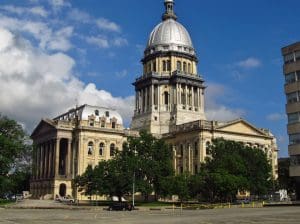The economic crisis caused by the coronavirus pandemic poses a triple challenge for tax policy in the United States. Lawmakers are tasked with crafting a policy response that will accelerate the economic recovery, reduce the mounting deficit, and protect the most vulnerable.
To assist lawmakers in navigating the challenge, and to help the American public understand the tax changes being proposed, the Tax Foundation’s Center for Federal Tax Policy modeled how 70 potential changes to the tax code would affect the U.S. economy, distribution of the tax burden, and federal revenue.
In tax policy there is an ever-present trade-off among how much revenue a tax will raise, who bears the burden of a tax, and what impact a tax will have on economic growth. Armed with the information in our new book, Options for Reforming America’s Tax Code 2.0, policymakers can debate the relative merits and trade-offs of each option to improve the tax code in a post-pandemic world.



D.C. Council Forwards Hefty Cigarette Tax Increase
While a cigarette tax increase can seem like a productive step for public health, the decision carries with it many undesirable outcomes.
2 min read
Not So Much Ado About Stock Buybacks—Q1 2018 Repurchases Comparable to Past Years
A closer look at the data shows that the amount of stock buybacks following the enactment of the Tax Cuts and Jobs Act isn’t out of the norm.
3 min read
States Can’t Just Hit Pause on Implications of Federal Tax Reform
The new federal tax law left states with some important decisions to make. If they delay, their residents could face confusion come filing time.
4 min read

What’s in the Iowa Tax Reform Package
Iowa Gov. Kim Reynolds is on the verge of signing tax reform legislation that would greatly improve the state’s needlessly complex tax code.
6 min read
Missing Some Context on Stock Buybacks
Stock buybacks made since the enactment of the Tax Cuts and Jobs Act doesn’t mean that workers won’t ultimately benefit through higher wages.
2 min read
